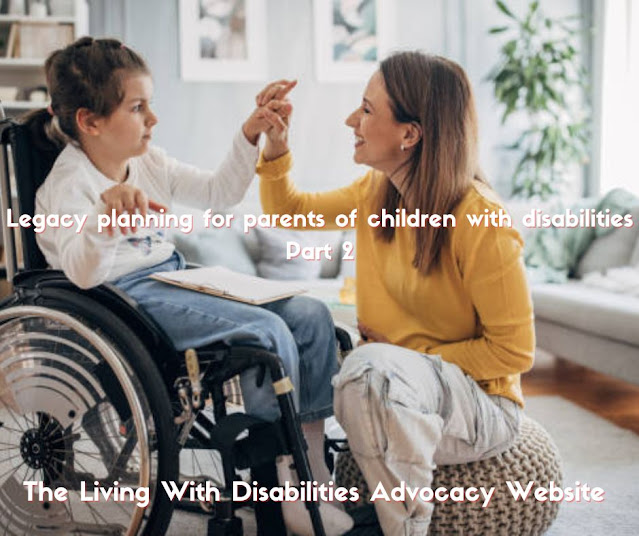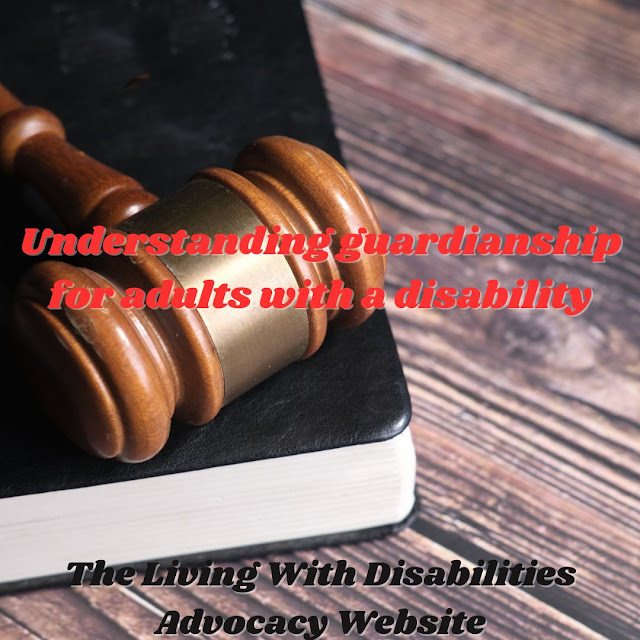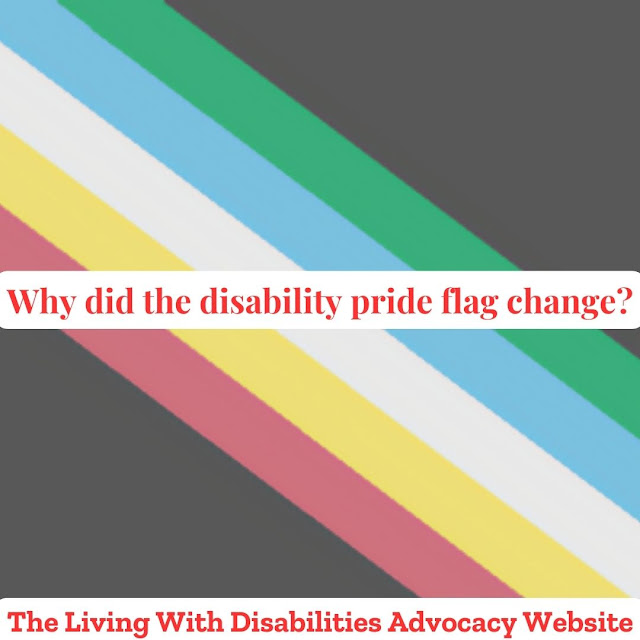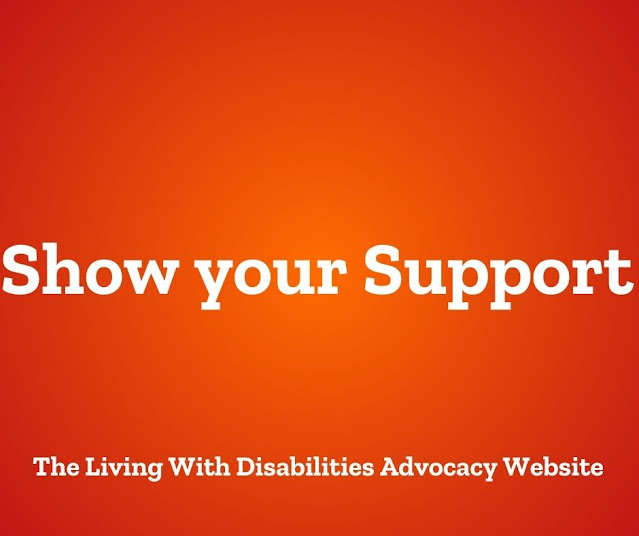Legacy planning for parents of children with disabilities Part 2
If you're a new visitor to this advocacy website, this page aims to increase public understanding of those with disabilities and other conditions.
We suggest you seek a licensed professional counselor or healthcare provider for anything you read on this site.
This week, Living With Disabilities will finish talking about legacy planning for parents of children with disabilities. As parents come of age, how can they prepare their children for medical and financial guidance? Parents need to start as soon as possible.
For those new to Living With Disabilities, I suggest starting with Part 1 of Legacy Planning for Parents of Children with Disabilities. Please keep reading this post if you have been with Living With Disabilities from the beginning.
Analyzing Your Legal Choices
You might look into your legal alternatives to provide your kid with further protection if you wish to prevent the likelihood that you won't be able to manage your personal or financial issues.
Conservatorships and guardianships designate a person to act on your behalf if you become incapable. Your child's safety can be ensured by a reliable person.
Similar legal advantages are provided by a power of attorney (POA). You can appoint an agent to act on your behalf with a POA.
Recall that these solutions need to function to provide your youngster additional protection rather than taking away their independence.
Conservatorships and guardianships
A guardianship or conservatorship is a legal arrangement whereby a court names a representative to operate on behalf of an incompetent person.
If your kid is a juvenile, this legal protection is known as a conservatorship; if the person is an adult child or you, it is known as a guardianship.
You will want court permission to seek guardianship or conservatorship, and the procedure may be expensive.
Authority To Act
An authority to act (other words for authority to act are the powers of attorney) is a legal document enabling another person to take action on your child's behalf.
Someone you designate as an agent would take on the role of caring for your kid and making crucial choices. Someone you can trust in your family might fill this job.
The authority to act cannot be enforceable if your child does not consent to it. Although you are not required to present in court, you normally need an attorney to sign your POA paperwork.
The consequences of government assistance
The way your Legacy plan is structured should not have an impact on government benefits.
With a special needs trust, you can continue to be eligible for several government programs.
Government Benefits That Qualify Under a Special Needs Trust
Supplementary Social Security Income is a useful service that gives those with little income and resources a monthly stipend. It is specially made to help the elderly, the blind, and others with disabilities. By giving the recipients more help to satisfy their fundamental necessities, this financial aid may have a big impact on their lives.
Medicaid is another beneficial program that offers health coverage to people who meet specific requirements. It is intended to help those with low incomes, kids, expectant mothers, senior citizens, and individuals with disabilities.
Lastly, Section 8 housing is a federally sponsored, locally managed program for rental assistance.
Legal Records to Compile
Some legal papers, like your will, you may prepare yourself while drafting the others. Some, like a power of attorney, though, will probably need expert assistance.
The most basic legacy plan comprises the following legal documents:
Authority to act A power of attorney enables another person to handle financial, medical, and legal decisions on your behalf. This choice may include crucial information about your child's medical strategy.
When you pass away, your Will determines how your assets will be distributed.
Prior Intent: any document that addresses future medical decision-making is referred to as an advance directive.
Above all, your child's requirements are especially met by the special needs trust. Another sensible choice to think about is a pooled trust.
How Frequently Should Your Estate Plan Be Reviewed? you should evaluate your Legacy plan at least once every three to five years or if a significant life event occurs. According to Fidelity Investments.
A big life event might be getting married, getting divorced, losing a family member, or moving into a new house. Alternatively, you should promptly amend your legacy plan if your child's requirements change.
Putting Together Your Child's Legacy Plan
You can establish your child's estate plan with the assistance of particular materials provided by the American College of Trust and Estate Counsel (ACTEC). Putting Together Your Child's Legacy Plan.
Shall I have a trustee position?
Trusts for special needs
I have a power of attorney (POA); should I use it to act as a health agent?
Should a financial power of attorney (POA) appoint me as its agent?
Getting ready for the first meeting regarding estate planning
How to have the inheritance planning conversation with your family.
You want to Develop a solid legacy plan for your child's future requires expert assistance.
While you can manage many aspects of estate planning on your own, more complicated problems are best left to the expertise of a financial advisor or attorney.
Living With Disabilities Presents: The Advocacy Table
a space created for people with disabilities to be able to have freedom of speech and talk on different topics surrounding the disability community. To get more details, check out The Advocacy Table. To become a panelist, Write into the show and let the host know what topic you want to talk about. She will then send out a group email to all panelists after the show has reached five or ten people. After the show, a survey will be emailed to you, and we would love to get your feedback.
If you need online support, Disability Safe Haven is great for receiving support. The We Care Team is very protective of its members and asks everyone who joins, to have a profile picture and answer the security questions.
Another online support, Living With Cerebral Palsy, is great for people with cerebral palsy and for family and friends who want to learn more about different types of cerebral palsy and how to support their loved ones who have it. This group has open and closing hours and a 24/7 chatroom. Open and closing hours are based on United States time zones.
To become a guest on Living With Disabilities
https://docs.google.com/forms/d/e/1FAIpQLScN0j1lThH8KaknxmeXIESTBC5NJWJjj9V0jubnYT5yMAffiw/viewform?usp=sf_link
Reference Link
Estate Planning for Loved Ones with Disabilities (annuity.org)
Podcast Link




Comments
Post a Comment